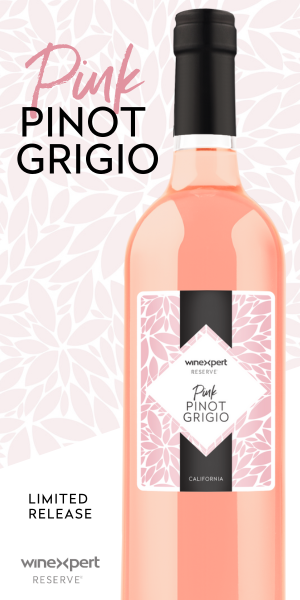I’ve heard both “yes” and “no” on soaking corks before bottling… So to soak or not to soak?
Q: I’ve heard both “yes” and “no” on soaking corks before bottling. All of the commercial wineries I’ve visited don’t soak their corks before bottling. Can you set us straight on whether to soak or not to soak?
— Jack Anders • Lindenwold, New Jersey
A: No commercial wineries that I’ve worked with soak their corks before bottling because it’s not necessary for larger-scale businesses. Commercial wineries buy corks by the thousands from reputable companies with high turnover. They buy full bags and only order enough for their scheduled bottling runs, ensuring that small excess quantities aren’t left over to dry out, get dusty and become unusable over time. They ensure that their suppliers (the cork companies) test for moisture content, screen for TCA and spoilage microbes and deliver fresh, clean, ready-to-use corks. The corks come right out of the hermetically sealed, sulfur-dioxide sparged, factory-packed plastic bag.
The problem for small-scale and boutique winemakers is that it can be harder (not to mention more expensive, since they can’t match a big winery’s economy of scale) to procure such a high quality and consistent cork supply. This is probably, in a roundabout way, the reason why many small operations continue to soak their corks even in the face of better overall cork quality.
Finding the reason is as easy as answering the following question: Who tends to be on the bottom of the cork supply food chain? Not commercial wineries, which are large, repeat customers but the small mom and pop home winemaking retailer, who maybe only order one bag of 1,000 corks at a time (enough for about three barrels of wine), a few times a year. Since their home winemaker customers tend to buy corks in small quantities, the well-intentioned shopkeeper rips open the sealed bag from the cork factory and divvies them into their own plastic baggies. Even worse, some retailers just tip their corks loose into bulk bins for customers to paw through, selecting the exact number of corks they want. Since all of this breaking-down of the standard-sized 1,000-cork bag makes for dried-out, dusty and potentially contaminated corks, it’s no wonder that small-scale winemakers have historically doused their corks in a strong sulfite solution in an attempt to mitigate these potential threats!
Luckily, these days stores and Websites that supply small-scale winemakers are understanding the importance of cork quality more and more. Most do their best to keep corks in the original suppliers’ bags or, if they must break down orders, to gas plastic bags with sulfur dioxide, which retards the growth of microbes. Similarly, retailers understand that they can’t keep last year’s corks around for this vintage’s clients and will destroy (or turn into decorative cork boards) inventory that has passed its expiration date.
So, should you soak your corks or not before you use them? If you are fortunate enough to order your corks direct from the factory, in a sealed bag, you don’t need to, unless it helps you slip the cork into the bottle easier with your hand corker. Similarly, if you buy your corks from a winemaking supply store that you know has a lot of customers and a high turnover of their cork inventory, you probably don’t need to rinse or soak your corks either. If, however, you aren’t in either of the above camps and don’t know how long your corks have been exposed to the air, where they came from or how old they are, it might be a good idea — or at the least it’ll make you feel like you’re doing something to help.
I think this is where most of our good-intentioned soaking of corks comes from. Since we know we may have to (at least in some situations) accept less-than-ideal corks, we feel that a quick dip in a 70 ppm sulfite solution spiked with 1 g/L of tartaric acid (one of the many sulfite cocktails I’ve seen in use) may at least rinse the dust away and retard some surface-dwelling bad guys. Unfortunately, the reality is that once a cork has dried out and a mold colony has invaded its nooks and crannies, there’s very little that a winemaker can do, whether working for a top of the line facility or simply making it work in their garage. Even a rigorous wash in a sulfite solution, or any other available sanitizing compound — no matter how strong — won’t be able to do much. Wash corks in water that isn’t sulfited and you may even increase the chance of infecting your corks by providing opportunistic microorganisms with a source of moisture.
So what’s a small-scale winemaker to do? Make sure that you buy your corks from a reputable supplier with high turnover. Never take chances on old, dried out corks that could spoil your wine or cause your bottles to leak.
Better yet, to ensure the best cork quality, go in with a group of friends or your local winemaking club and place “real winery” orders in multiples of 1,000 corks at a time in sealed bags.

